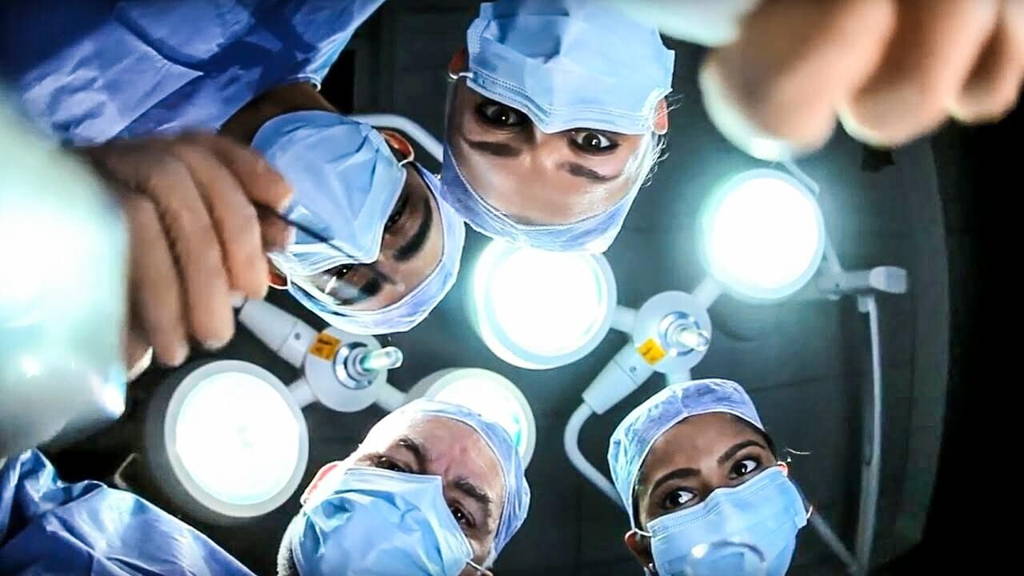For example: sequencing a human genome - all three billion letters of it, which denotes an individual's unique DNA sequence - used to take years to achieve. Now it takes less than a week. This information and the speed with which it is made available is improving scientists' understanding of the genetic basis of many human diseases. Large-scale projects like the 100,000 Genomes Project are actually starting to give some families a diagnosis for their children's mystery conditions. The more genomes analysed, the greater the hope of new and more effective treatments for rare diseases.
Even the patient record (some 60 million in the UK) held by GP scan be used in ways never thought of before. When combined with hospital data on everything from why people are admitted, to their scans, X-rays and pathology results, electronic patient records are a very valuable resource.
Prof Harry Hemingway, professor of clinical epidemiology and director of the Farr Institute of Health Informatics Research, wants to use that data to improve people's health and the quality of their healthcare, by analysing all kinds of anonymised information. By linking up data from primary and secondary care, for example, he says it is possible to "identify the crucial time course of disease". In other words: to identify a disease like cancer at an earlier stage by examining what symptoms weren’t picked up with cancer patients.
It is a similar story with cardiovascular disease - one of the world's major killers. "We can use data and computers to look at all the symptoms and identify markers of these diseases," Prof Hemingway says. "We have a powerful set of opportunities to make advances across the whole of health and biomedicine."
They have provided blood, urine and saliva samples for future analysis, given detailed information about their bodies, diets and lifestyles - and everyone will be followed up regularly until the day they die. Recently, large groups of the participants have also undergone cognitive function tests, others have gone through genotyping - determining differences in a person's genetic make-up - and yet more have had images taken of their brains.
All this the data collected should help scientists discover why some people develop particular diseases and others do not. But it’s a daunting task. Prof Landray: "You can't just sit a radiologist down in front of thousands of MRI scans to analyse. You have to simplify it down and then make it accessible for researchers to look at."
Help is on the way though. As part of the soon-to-be-opened Big Data Institute in Oxford, more than 500 scientists will take up the challenge of handling the Biobank data and analysing it.
Making use of big data
But genomes are just one element of the move to make use of 'big data' in medicine and healthcare.Even the patient record (some 60 million in the UK) held by GP scan be used in ways never thought of before. When combined with hospital data on everything from why people are admitted, to their scans, X-rays and pathology results, electronic patient records are a very valuable resource.
Prof Harry Hemingway, professor of clinical epidemiology and director of the Farr Institute of Health Informatics Research, wants to use that data to improve people's health and the quality of their healthcare, by analysing all kinds of anonymised information. By linking up data from primary and secondary care, for example, he says it is possible to "identify the crucial time course of disease". In other words: to identify a disease like cancer at an earlier stage by examining what symptoms weren’t picked up with cancer patients.
It is a similar story with cardiovascular disease - one of the world's major killers. "We can use data and computers to look at all the symptoms and identify markers of these diseases," Prof Hemingway says. "We have a powerful set of opportunities to make advances across the whole of health and biomedicine."
Making sense of all the data
A problem with using big data is knowing which questions to ask. How to make sense of all the data? Prof Martin Landray, professor of medicine and epidemiology at the University of Oxford, is is helping to analyse data from the UK Biobank, a project which started in 2006 and which has recruited half a million people aged 40 to 69 from across the country.They have provided blood, urine and saliva samples for future analysis, given detailed information about their bodies, diets and lifestyles - and everyone will be followed up regularly until the day they die. Recently, large groups of the participants have also undergone cognitive function tests, others have gone through genotyping - determining differences in a person's genetic make-up - and yet more have had images taken of their brains.
All this the data collected should help scientists discover why some people develop particular diseases and others do not. But it’s a daunting task. Prof Landray: "You can't just sit a radiologist down in front of thousands of MRI scans to analyse. You have to simplify it down and then make it accessible for researchers to look at."
Help is on the way though. As part of the soon-to-be-opened Big Data Institute in Oxford, more than 500 scientists will take up the challenge of handling the Biobank data and analysing it.






